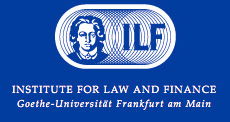Welcome to VIPsight studies & science
Here we present articles, studies and research findings accepted by the editor on a proposal by at least one sponsor. more

The editor is free to decide on inclusion; there is no legal entitlement to publication. The editor has to ensure that the document fits Vipsight.eu thematically and that a critical discussion of its content can be conducted. The editor’s selection will be guided by a concern for political, ethnic, cultural and denominational balance.
18 February 2018
Gibson Dunn - 2017 Mid Year Activism Update
This Client Alert provides an update on shareholder activism activity involving NYSE- and NASDAQ-listed companies with equity market capitalizations above $1 billion during the first half of 2017. Activism has continued at a vigorous pace thus far in 2017. As compared to the same period in 2016, this mid-year edition of Gibson Dunn’s Activism Update captured more public activist actions (59 vs. 45), more activist investors taking actions (41 vs. 35), and more companies targeted by such actions (50 vs. 38).
<click here> complete version (PDF)
7 January 2016
Driving Longterm Investment and Delivering Responsible Financial Markets
A Preliminary Paper on Industry Priorities
RESPONSIBLE INVESTMENT ASSOCIATION AUSTRALASIA,
LEVEL 9, 387 GEORGE STREET, SYDNEY NSW 2000

Introduction
The importance of focusing capital markets on the longer term is a matter of much international discussion, debate and regulation globally. This global activity on this issue — for example the UK’s Kay Review and Stewardship Codes, the EU Shareholder Directive, Japan’s Ito Review and the work of groups including UNEP Finance Initiative, OECD/G20, Generation Foundation, McKinsey and the Focusing Capital on the Long Term initiative to name but a few — is in response to an ever shorter-term focus of investor and corporation performance at the cost of longer term investment returns and the prosperity of the broader economy.
<click here> complete version (PDF)
7 January 2016
The Widening Scope of Directors’ Duties: The Increasing Impact of Corporate Social and Environmental Responsibility
by THOMAS CLARKE
Director, Centre for Corporate Governance, UTS Sydney, Australia

INTRODUCTION: TRADITIONAL INTERPRETATIONS AND NEW REALITIES OF DIRECTORS’ DUTIES
This Article concerns the widening scope of directors’ duties under the increasing impact of the pressures for corporate social and environmental responsibility. Narrow interpretations of directors’ duties that focus simply on the commercial success of the business and relegate other considerations to externalities are not tenable in the present context. The dawning realization of the global consequences of imminent climate change provides a series of inescapable challenges for business enterprises.
<click here> complete version (PDF)
27 September 2015
High-frequency trading and dark pools: sharks never sleep
by THOMAS CLARKE
Director, Centre for Corporate Governance, UTS Sydney, Australia

<click here> complete version (PDF)
4 April 2015
Overview of the study: Appraisal proceedings after Squeeze Out
by Dr. Martin Weimann

This study shows the significance and the course of proceedings for the exclusion of minority shareholders by the majority shareholder in a German stock corporation by way of a squeeze out under German corporate law, i.e. pursuant to secs. 327a et seq. German Stock Corporation Act (AktG), respectively sec. 62 (5) German Companies Transformation Act (UmwG) and sec. 12 (4) German Act on the Acceleration and Simplification of the Acquisition of Shares and Risk Positions of Financial-Sector Enterprises by the Fund “Financial-Market Stabilisation Fund – FMS” (FMStBG), as well as for the subsequent judicial review proceedings (so-called “appraisal proceedings”). In appraisal proceedings only the adequacy of the cash compensation offered by the majority shareholder to the minority shareholders is reviewed by the competent court.
<click here> complete version (PDF)
16 June 2014
The impact of financialisation on international corporate governance: the role of agency theory and maximising shareholder value
THOMAS CLARKE

Affiliation?
The phenomena of financialisation has had a universal and pervasive impact upon economies and societies in recent decades. Global finance is now typified by a more international, integrated and intensive mode of accumulation; a new business imperative of the maximization of shareholder value; and a remarkable capacity to become an intermediary in every aspect of daily life. The finance sector has progressively increased its share of GDP, and even for non-financial corporations the pursuit of interest, dividends and capital gains outweigh any interest in productive investment. As non-financial corporations have become increasingly drawn into a financial paradigm they have less capital available for productive activity. These financial pressures are translated into the operations of corporations through the enveloping regime of maximising shareholder value as the primary objective. Agency theory has provided the rationale for this project, prioritising shareholders above all other participants in the corporation. This article seeks to discover the origins of the financialisation of corporations in the early development of agency theory and shareholder value in Anglo-American corporations. The enduring myths of shareholder primacy are examined. The article concludes with a consideration of how the reform of corporate law might serve to strengthen the recognition and pursuit of the wider purposes of corporations and longer-term investment horizons.
<click here> complete version (PDF)
16 June 2014
Strategic and Regulatory Approaches to Increasing Women in Leadership: Multilevel Targets and Mandatory Quotas as Levers for Cultural Change
Alice Klettner • Thomas Clarke • Martijn Boersma

Abstract
While substantial evidence is emerging internationally of positive increases in the participation of women on company boards, there is less evidence of any significant change in the proportion of women in senior executive ranks. This paper describes evidence of positive changes in the number of women on boards in Australia. Unfortunately these changes are not mirrored in the senior executive ranks where the proportion of women remains consistently low. We explore some of the reasons for these disproportionate changes and examine the likely effect of the recent amendments to the Australian stock exchange’s corporate governance code designed to improve gender diversity both on boards and throughout organisations. Based on the early corporate response to these regulatory changes, it is interesting to consider whether Australia’s approach in promoting voluntary self-regulation at the corporate level may be as effective in the long run as the emerging trend in Europe to apply legislated quotas for female corporate board representation. Interview evidence is presented suggesting that the primary reasons for the lack of women in leadership are not simply lack of opportunity at the apex of the corporation, but issues at mid-management level that are unlikely to be resolved by mandatory board quotas. In some circumstances carefully monitored voluntary targets may be more effective at promoting cultural and strategic change at the heart of the corporation. In summary, mandatory quotas (set through hard law usually with sanctions for noncompliance) may achieve early and significant results in terms of female board representation. However, voluntary targets for women’s participation on boards and in executive ranks (proposed in soft regulation such as corporate governance codes and set as part of corporate strategy) may promote more effective cultural and practical change in support of greater representation of women in leadership.
<click here> complete version (PDF)
14 April 2014
Corporate governance package – frequently asked questions

I. Revision of the Shareholder Rights Directive as regards the encouragement of long-term shareholder engagement
Key issues addressed by the proposal:
-
Insufficient engagement of institutional investors and asset managers
-
Insufficient link between pay and performance of directors
-
Lack of shareholder oversight on related party transactions
-
Inadequate transparency of proxy advisors
-
Difficult and costly exercise of rights flowing from securities for investors
1. Why does corporate governance matter? What is good corporate governance?
Corporate governance is the system of rules, practices and processes by which a company is directed and controlled. Good corporate governance ensures that companies and their management operate within a framework of checks and balances so they are accountable both to their owners and to society at large. Good corporate governance ensures the company’s management makes decisions in the best interests of the company and thus significantly contributes to companies’ competitiveness and long term sustainability and therefore to economic growth and jobs. Evidence1 suggests that well-governed companies perform better and are more successful in the long run.
<click here> complete version (PDF)
2 February 2014
Corporate Governance - The State of Engagement of European Shareholders
A Study Conducted by the Club of Florence
and the University of Hamburg
 |
Executive Summary
Investors, especially institutional investors, have a crucial responsibility to control the corporations’ optimization of long-term value creation in our European financial system. However, the European financial crisis has taught us that the investors’ engagement process is not yet well established in Europe. The European Commission takes the investors’ lack of engagement and short-term orientation up due to initiatives for new regulations. But is regulation in this way desirable?
This study examines the state of engagement within the scope of corporate governance in Europe. Therefore the study contains results about the three main topics “the form and subject matter of engagement” (section 3), “the engagement process” (section 4) and “the impediments of engagement” (section 5).
Highlights of the study include:
− The respondents’ attribute first and foremost responsibility to the engagement initiative.
− The execution of engagement is most prevalent in complex investment processes.
− The results emphasize the element of trust in the engagement process.
− The need for standardization of the engagement process is under discussion.
− Mostly the lack of time and the lack of expertise are reasons to delegate the engagement process.
− Only 50% of all interviewed investors check the progress of the engagement as part of the investor’s control regarding the process.
− Only a few investors focus on value-based performance indicators for measuring the engagement’s success.
− Those investors who do without any engagement justify the missing engagement with impediments that can be wiped out by delegating the engagement initiative.
The results of this study have important practical implications. Before implementing political regulations by law, the results about the investors’ measurement of the engagement’s success, about the investors’ process of control and about the reasons why some investors do not participate in any engagement initiative should be taken into consideration in order to implement efficient and effective regulations.
<click here> complete version (PDF)
5 August 2013
Improving Corporate Governance and SHAREHOLDER ENGAGEMENT
The Association of British Insurers

Good corporate governance enhances and underpins a company’s long-term sustainable performance: it is critical to long-term value creation and economic growth.
Following Professor Kay’s review of UK equity markets and the newly revised FRC’s Stewardship Code, there has been increasing debate over the different responsibilities in corporate governance and, in particular, on the role of institutional investors in overseeing the companies they invest in. These are all different elements of ‘stewardship’.
In this document, to help address these wide-ranging issues, we therefore:
- review the existing roles and responsibilities in corporate governance and shareholder engagement and make recommendations on how these may be enhanced; and
- demonstrate how existing mechanisms of corporate governance operate to support positive performance outcomes.
Specifically, we:
- review the underlying purpose of corporate governance;
- clarify the roles of different participants in governance;
- review the role of non-executive directors and consider board structures;
- review current approaches to shareholder engagement and consider possible improvements;
- review existing shareholder rights and measures to encourage long-term investment; and
- review the role of asset managers relative to asset owners, asset managers’ underlying clients.
<click here> complete version (PDF)
12 November 2012
Misadventures of An Irresponsible Investor
Jack Gray

Abstract:
The ESG movement is nudging toward an unhealthy state of political correctness, one that brooks no criticism (and there is much, but mostly sotto voce). Boards spend excessive time on ESG relative to any expected benefits for the principals; managers cynically sign up to UNPRI else their business suffers; while principals, when given a choice, eschew the option. Nonetheless, ESG raises important questions about the very purpose of fiduciary investing, especially whether a pension fund has any social responsibility beyond generating the greatest risk-adjusted return for its beneficiaries. Jane Ambachtsheer, Stephen Davis, and Keith Johnston were invited to respond to Gray’s views. Their comments follow immediately after this article.
http://papers.ssrn.com/sol3/papers.cfm?abstract_id=2147770
11 November 2012
The Australian Council of Superannuation Investors

In its latest annual series of reports on corporate governance issues in Australia, the Australian Council for Superannuation Investors (ACSI) has published research by the investor-activist group, Ownership Matters, into proxy voting, in particular "the inner workings, the idiosyncracies and anomalies" (Byrne 2012) of the voting process. This report publishes the changing, dynamic environment in ensuring shareholders and stakeholders can keep their companies responsive and accountable.
<click here> complete version (PDF)
10 November 2012
Reclaiming Fiduciary Duty Balance
James P. Hawley
St. Mary's College
Keith L. Johnson
International Corporate Governance Initiative; Reinhart Institutional Investor Services
Edward J. Waitzer
York University - Osgoode Hall Law School; Schulich School of Business; Stikeman Elliott LLP

Abstract:
Fundamental fiduciary principles have survived intact for centuries, yet their interpretation has been dynamic. Given changes over the past few decades in global economic, capital management, and market structures, we appear to be at another inflection point in the understanding of fiduciary principles. Years of focus on the fiduciary duty of prudence has generated myopic investment herding behaviors, undermined intergenerational pension equity, and disrupted attention to the fiduciary duties of loyalty and impartiality. Reclaiming fiduciary duty balance between prudence, loyalty and impartiality is critical to sustaining pension promises. It would encourage better alignment of pension service providers’ supply chain interests, adoption of fit-for-purpose pension fund governance practices, and implementation of precautionary risk management policies.
http://papers.ssrn.com/sol3/papers.cfm?abstract_id=1935068
4 June 2012
Entlastung des Aufsichtsrates und seiner Mitglieder
Universitätsprofessor Dr. Dr. Manuel René Theisen
Ludwig Maximilians-Universität München
![]()
<click here> complete version (PDF)
1 June 2012
Moral Hazard in small caps
– German Corporate Governance from a New Institutional Economics perspective –

Dr. Kai Holtmann

<click here> complete version (PDF)
2 March 2012
Shareholder Suits in German Company Law
- An Empirical Study


<click here> text version (summery)
<click here> complete version (PDF) (full version only in german)
18 February 2012
Corporate Governance Forum
Information for Supervisory Board and Audit Committee members
Martin Plendl

<click here> complete version (PDF)
30 January 2012
CHARACTERISTICS OF CHAIRMAN STATEMENT AND FINANCIAL PERFORMANCE:
EVIDENCE FROM AN EMERGING ECONOMY

Jyoti Devi Mahadeo
<click here> complete version (PDF)
28 January 2012
A Sustainable Future for Corporate Governance Theory and Practice

Shann Turnbull

<click here> complete version (PDF)
18 January 2012
"Rethinking directors' duties, governance and regulation"
Shann Turnbull

<click here> text version
<click here> complete version (PDF)
25 October 2011
A year to remember
An overview of the 2011 General Meeting Season in the Netherlands
Cas Sydorowitz, Domenic Brancati and Kirsten van Rooijen
<click here> complete version (PDF)
17 July 2011
Board team leadership revisited:
a conceptual model of shared leadership in the boardroom
M. Vandewaerde, W. Voordeckers, F. Lambrechts and Y. Bammens
<click here> text version
17 July 2011
Are the Seeds of Bad Governance Sown in Good Times?
Antoinette Schoar and Ebonya Washington
<click here> complete version (PDF)
27 July 2010
Corporate Governance in Africa
A survey of publicly listed companies
Sam Nganga, Vimal Jain and Mark Artivor

<click here> complete version (PDF)
5 July 2010
Corporate Governance
Ethical compliance in the asset management industry
Prof. Dr. Alexander Bassen and Dr. Christine Zöllner

<click here> text version
<click here> complete version (PDF)
24 June 2010
GLOBAL CEOs WANT INVESTORS TO ACT TO CREATE
SUSTAINABILITY ‘TIPPING POINT’

<click here> text version


















